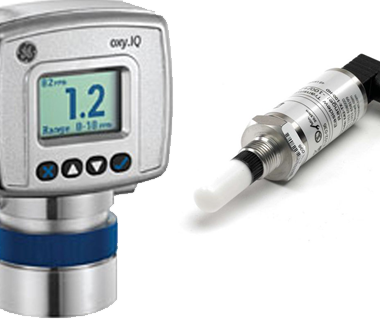Environment, Health and Safety Manual – Chapter 06.07: Clinical Safety – Healthcare Personnel Who Are Infected With Hepatitis B Virus, Hepatitis C Virus, and/or Human Immunodeficiency Virus
Title
Environment, Health and Safety Manual – Chapter 06.07: Clinical Safety – Healthcare Personnel Who Are Infected With Hepatitis B Virus, Hepatitis C Virus, and/or Human Immunodeficiency Virus
Policy Statement
This policy addresses the procedures required by the University and UNC Hospitals to reduce the risk for provider-to-patient transmission of Hepatitis B (HBV), Hepatitis C (HCV), and/or Human Immunodeficiency Virus, (HIV) for health care personnel who provide direct patient care. This policy also reinforces the University and UNC Health Care requirements of strict adherence to Standard Precautions for all health care personnel in clinical care areas, as adherence to Standard Precautions is the most effective way to prevent disease transmission.
Definitions
Standard Precautions are the minimum infection prevention measures that apply to all patient care, regardless of suspected or confirmed infection status of the patient, in any setting where health care is delivered. These evidence-based practices are designed to both protect health care personnel and prevent the spread of infections among patients. Standard Precautions include:
- hand hygiene
- use of personal protective equipment (e.g., gloves, gowns, facemasks), depending on the anticipated exposure
- respiratory hygiene and cough etiquette
- safe injection practices
- safe handling of potentially contaminated equipment or surfaces in the patient environment
Category I Procedures are defined in the Updated CDC Recommendations for the Management of Hepatitis B Virus-Infected Health-Care Providers and Students as procedures known or likely to pose an increased risk of percutaneous injury to a health care provider that have resulted in provider-to-patient transmission of hepatitis B virus (HBV). These procedures are limited to major abdominal, cardiothoracic, and orthopedic surgery, repair of major traumatic injuries, abdominal and vaginal hysterectomy, caesarean section, vaginal deliveries, and major oral or maxillofacial surgery (e.g., fracture reductions).
Category II Procedures are defined in the Updated CDC Recommendations for the Management of Hepatitis B Virus-Infected Health-Care Providers and Students as all other invasive and noninvasive procedures not included in Category I Procedures because they pose low or no risk for percutaneous injury to a health care provider or, if a percutaneous injury occurs, it usually happens outside a patient’s body and generally does not pose a risk for provider-to-patient blood exposure. These include:
- Surgical and obstetrical/gynecologic procedures that do not involve the techniques listed for Category I Procedures
- The use of needles or other sharp devices when the health care provider’s hands are outside a body cavity (e.g., phlebotomy, placing and maintaining peripheral and central intravascular lines, administering medication by injection, performing needle biopsies, or lumbar puncture)
- Dental procedures other than major oral or maxillofacial surgery
- Insertion of tubes (e.g., nasogastric, endotracheal, rectal, or urinary catheters)
- Endoscopic or bronchoscopic procedures
- Internal examination with a gloved hand that does not involve the use of sharp devices (e.g., vaginal, oral, and rectal examination)
- Procedures that involve external physical touch (e.g., general physical or eye examinations or blood pressure checks)
Enhanced Standard Precautions are any measures that are adopted in addition to the minimum infection control measures that form the basis for Standard Precautions. Examples include double gloving and scheduled re-gloving during surgical procedures.
- Executive Director: Executive Director for Campus Health Services.
- Exposure-Prone Procedures: Procedures in which access for surgery is difficult or those in which sharps injuries are likely to occur, typically in very closed and unvisualized operating spaces in which glove and skin integrity of the operator might be compromised.
- Health Care Personnel (HCP): All paid and unpaid persons working in health care settings who have the potential for exposure to patients and/or to infectious materials, including body substances, contaminated medical supplies and equipment, contaminated environmental surfaces, or contaminated air. HCP include (but are not limited to physicians, nurses, nursing assistants, therapists, technicians, emergency medical service personnel, dental personnel, pharmacists, laboratory personnel, autopsy personnel, students and trainees, contractual staff not employed by the healthcare facility, and persons (e.g., clerical, dietary, housekeeping, laundry, security, maintenance, administrative, billing, volunteers) not directly involved in patient care but potentially exposed to infectious agents that can be transmitted to and from HCP and patients.
- Hepatitis B (HBV): A small, double-shelled virus in the family Hepadnaviridae. HBV infection is an established cause of acute and chronic hepatitis, cirrhosis, and hepatocellular carcinoma. Transmission of the virus in the health care setting occurs by parenteral or less commonly mucosal exposure to HIV contaminated body fluids (e.g., blood).
- Hepatitis C (HCV): A member of the Flaviviridae family and causes both acute and chronic hepatitis. Transmission of the virus in the health care setting occurs by parenteral and rarely by mucosal exposure to HCV contaminated body fluids.
- Human Immunodeficiency Virus (HIV): A lentivirus that leads to acquired immunodeficiency syndrome. Transmission of the virus in the health care setting occurs by parenteral or much less commonly by mucosal exposure to HIV contaminated body fluids.
- Medical Director: Medical Director of the University’s Employee Occupational Health Clinic and/or the Medical Director of the UNC Hospitals Occupational Health Services.
Audience
Health Care Personnel who perform surgical, obstetrical, or dental procedures and/or assist in these procedures and who are currently or become aware that they are infected with HVB, HCV, and/or HIV are covered by this Policy.
Reason for Policy
Recent recommendations from the Society of Healthcare Epidemiology (SHEA) and the Centers for Disease Control (CDC) that address the prevention of provider-to-patient transmission of bloodborne viruses reflect changes in the epidemiology of HBV, HCV, and HIV infections in the United States, advances in medical management of chronic viral infections, and more than two decades of investigations of suspected provider-to-patient infections. Updates include the following:
- Due to numerous factors (including that the risk of provider-to-patient transmission of bloodborne viruses is extremely low), it is no longer recommended that HCP make routine mandatory disclosures of their disease status to patients.
- Previous recommendations that an expert review panel be convened for all HCP with HBV, HCV, and/or HIV infection have been modified, and expert review panel oversight is now recommended only for individuals who perform Exposure-Prone Procedures.
- For HCP with HBV, HCV, and/or HIV infection, safe clinical practice guidelines have been established and include both enhancements to Standard Precautions (i.e., routine double gloving) and establishment of acceptable levels of circulating viral burden needed to resume performing Exposure-Prone Procedures.
Compliance
HBV and/or HIV-Infected Employees and Students
All HCP in North Carolina who perform surgical, obstetrical, or dental procedures and/or assist in these procedures are required to notify the State Health Director in writing if they are or become infected with HIV or HBV in accordance with North Carolina lab (10A NCAC 41A.0207 HIV and Hepatitis B Infected Health Care Workers).
This notification should be sent to:
Chief, Communicable Disease Control Branch
1902 Mail Service Center
Raleigh, NC 27699-1902
HCV-Infected Employees and Students
As of the effective date of this Policy, there is no requirement that HCP infected with HCV notify the State Health Director. HCP who are or become infected with HCV and who perform surgical, obstetrical, or dental procedures and/or assist in these procedures are required to notify the appropriate Medical Director (employees) or the Executive Director (students) The Medical Director or Executive Director will make the initial determination to restrict or modify the scope of the HCP’s clinical practice using the same procedures as outlined for HBV and HIV.
Roles and Responsibilities
The Medical Director is responsible for the administration of the Policy as it pertains to employees of the University. The Executive Director is responsible for the administration of this Policy as it pertains to University students. Final responsibility for compliance with this Policy, including the authorization of temporary or permanent work restrictions for faculty and/or staff, lies with the Dean of the appropriate professional school.
Related Regulations, Statutes, and Related Policies
- Society of Healthcare Epidemiology guidelines for management of health care workers who are infected with Hepatitis B Virus, Hepatitis C Virus, and/or Human Immunodeficiency Virus. Infect Control Hosp Epidemiol 2010;31:3
- 10A North Carolina Administrative Code 41A.0207, HIV and Hepatitis B Infected Health Care Workers. Amended Eff. April 1, 2003 (10A NCAC 41A.0207)
- North Carolina Medical Board Position Statement. HIV/HBV infected health care workers. Reviewed January 2011
- Updated CDC recommendations for the management of hepatitis B virus-infected health-care providers and students. MMWR, Vol. 61, July 6, 2012
- Justice Department settles with the University of Medicine and Dentistry of New Jersey over discriminations against people with Hepatitis B. Available at https://www.ada.gov/umdnj_sa.htm. Accessed May 5, 2013
- Join Agency Letter to Health-Related Schools Regarding Hepatitis B Discrimination. Available at https://www.ada.gov/hepatitis-b-letter.htm. Accessed June 18, 2013
- Pearson ML., Bridges CB, Harper SA: Influenza vaccination of health-care personnel: Recommendations of the Healthcare Infection Control Practices Advisory Committee (HICPAC) and the Advisory Committee on Immunization Practices (ACIP). Morbidity and Mortality Weekly Report (MMWR) 2006; 55:1-16
Procedures
I. University Employees
Report/Notification
- Medical Director – All HCP in North Carolina who perform surgical, obstetrical, or dental procedures and/or assist in these procedures in a manner that may result in exposure of patients to their blood and who are or become diagnosed as infected with HBC, HCV and/or HIV are required to report their condition in writing to the Medical Director by the next business day.
- State Health Director – All HCP in North Carolina who perform surgical, obstetrical, or dental procedures and/or assist in these procedures in a manner that may result in exposure of patients to their blood are required to notify the State Health Director in writing if they are currently infected or become aware that they are infected with HIV or HBV1 in accordance with North Carolina lab (10A NCAC 41A.0207).
This notification should be sent to the State Health Director using the following address:Chief, Communicable Disease Control Branch
1902 Mail Service Center
Raleigh, NC 27699-1902The State Health Director will investigate the practice of any infected HCP and the risk for transmission to patients and provide notification of the results of the investigation to the HCP.
Duties Following Report/Notification
In addition to providing any required written notification to the Medical Director and to the State Health Director, infected employees who provide direct patient care (regardless of the type of patient care activities) are required to:
- As soon as reasonably possible and without negatively affecting patient care, stop ALL Category I Procedures, and
- Provide the Medical Director with a copy of any written notification the employee sent to the State Health Director.
Initial Evaluation
When an employee notifies the Medical Director of his or her clinical status AND the Medical Director is able to verify that the employee’s clinical practice is limited by scope of practice (including on-call responsibilities) to only Category II Procedures, then the employee can continue his or her current clinical duties while awaiting the results of any investigation by the State Health Director.
If the Medical Director determines that the employee’s clinical practice includes Category I Procedures, then immediate practice modifications/restrictions are required. The Medical Director will notify the appropriate individuals to establish any temporary work restrictions and/or work modifications pending the results of any investigation by the State Health Director.
Once an employee receives formal notification of the results of the State Health Director’s investigation, the employee must provide a copy of the notification to the Medical Director.
Subsequent Evaluation
Employees who do not require restrictions/modifications to their clinical practice AND who do not require ongoing review of their clinical condition or clinical practice (as determined by the State Health Director).
Upon receipt from an employee of a copy of the State Health Director’s notification, the Medical Director will confirm that the employee does not require any work restrictions, work modifications, or medical monitoring. The Medical Director will then notify the employee that he or she has met the requirements set forth in this Policy and that no further action or notification will be required. The employee will be allowed to return to clinical practice without restrictions/modifications and without need for ongoing review of his or her clinical condition.2
Employees who require modifications/restrictions to their current practice and/or who require periodic review of their clinical condition and practice (as determined by the State Health Director).
Such employees are likely to be:
- Initially restricted in their clinical practice; and/or
- Allowed to continue in clinical practice after additional training and/or safeguards (e.g., Enhanced Standard Precautions); and/or
- Restricted in their clinical practice unless low levels of viral burden are documented and maintained.
Upon receipt from the employee of a copy of the State Health Director’s notification, the Medical Director will notify the appropriate individuals as outlined in Appendix A and, with additional input from the University’s Equal Opportunity/ADA Office and the Office of University Counsel, will notify the appropriate Dean to ensure that the modifications/restrictions can be successfully implemented. If an employee is required to have periodic review of his or her clinical condition, a monitoring plan will be established with the Medical Director and the employee’s personal physician according to current CDC/SHEA guidelines. If an employee is unable to achieve the viral burden levels required to practice without restrictions, the Medical Director will notify the employee’s clinical chair and/or supervisor, and temporary restrictions will be imposed until the employee’s viral burden has reaches appropriate levels.3
II. University Students
Notification
- Executive Director – All students HCP in North Carolina who perform surgical, obstetrical, or dental procedures and/or assist in these procedures in a manner that may result in exposure of patients to their blood and/or assist in these procedures and who are or become diagnosed as infected with HBV, HCV, and/or HIV are required to report their condition in writing to the Executive Director by the next business day.
- State Health Director – Student HCPs who perform surgical, obstetrical, or dental procedures and/or assist in these procedures in a manner that may result in exposure of patients to their blood are required to notify the State Health Director in writing if they are currently infected or become aware that they are infected with HIV or HBV in accordance with North Carolina lab (10A NCAC 41A.0207). Students should use the address listed in Section I for any required notification to the State Health Director.
Duties Following Notification
In addition to providing any required written notification to the Executive Director and to the State Health Director, student-HCPs who provide direct patient care (regardless of the type of patient care activities) are required to:
- As soon as reasonably possible and without negatively affecting patient care, stop participating in ALL Category I Procedures,4
- Provide a copy to the Executive Director of any written notification the student HCP provided to the State Health Director
In accordance with current published guidelines, the Executive Director will decide if immediate practice modifications/restrictions are necessary pending a determination by the State Health Director.
Additional Information
University students who are or become infected with HBV, HCV, and/or HIV and who are actively seeking careers in health care and/or are enrolled in a health care training program are encouraged to contact Campus Health Services to set up an appointment with a designated health care provider.
III. Non-Discrimination
No University employee, student, or accepted applicant who has HIV, HBV or HCV may, by reason of such disability, be excluded from participation in or be denied the benefits of the University’s services, programs, or activities, except as provided in this Policy.
- As of the effective date of this Policy, there is no requirement that HCP infected with HCV report their clinical status to the State Health Director.
- In accordance with North Carolina law, any HCP who has been evaluated by the State Health Director is required to notify the State Health Director prior to a change in practice involving surgical or obstetrical procedures or dental procedures. Employees are required to provide the Medical Director with a copy of any subsequent determinations from the State Health Department. Additionally, employees are required to notify the Medical Director of any change in their disease status.
- See footnote 2.
- The CDC has concluded that Category I Procedures (especially for HBV transmission) are “not ordinarily performed by students fulfilling the essential functions of a medical or dental school education.”
Other Related Documents
Appendix A
Notification List for HIV/HBV/HCV Positive Employees Who Require Work Restrictions/Modifications
UNC School of Medicine Faculty and Staff
- The health care provider’s clinical department chair
- The Vice Dean of Finance and Administrative
- The Executive Associate Dean for Clinical Affairs and Chief Medical Officer
- The Medical Director of UNC Hospitals Occupational Health
UNC School of Dentistry Faculty and Staff
- The health care provider’s clinical department chair
- The Associate Dean for Clinical Affairs
- For UNC School of Dentistry faculty and staff who work in UNC Hospitals, the Medical Director of UNC Hospitals Occupational Health and the Chief Medical Officer
UNC School of Nursing Faculty and Staff
- The health care provider’s Division Chair
- The Associate Dean for Academic Affairs
- The Associate Dean of Administrative Services
UNC Hospitals
Please refer to the UNC Hospitals policy.
Appendix B
Notification List for HIV/HBV/HCV Positive Health Science Students Who Require Work Restrictions/Modifications
UNC School of Medicine Students
- Associate Dean for Student Affairs
- Vice Dean for Education
- Executive Associate Dean for Clinical Affairs and Chief Medical Officer
- Executive Director, Campus Health Services
UNC School of Dentistry Students
- Associate Dean for Academic Affairs
- Associate Dean for Clinical Affairs
- For UNC School of Dentistry students who work in UNC Hospital Settings, the Chief Medical Officer and Medical Director of UNC Hospitals Occupational Health
- Executive Director, Campus Health Services
UNC School of Nursing Students
- The Nursing Student’s Program Director
- Associate Dean for Academic Affairs
- Associate Dean of Administrative Services
- Assistant Dean, Office of Student Affairs
- Executive Director, Campus Health Services
Contacts
Thevy S. Chai, MD
Director of Medical Services, Campus Health Services
The University of North Carolina at Chapel Hill
Campus Box 7470
Chapel Hill, NC 27599-7470
Phone: 919-966-9176
[email protected]
James Hill, MD, MPH
Medical Director, University Employee Occupational Health Clinic
The University of North Carolina at Chapel Hill
UEOHC 145 N. Medical Drive
Chapel Hill, NC 27599
Phone: 919-966-9579
[email protected]
Environment, Health and Safety
1120 Estes Drive
Campus Box #1650
Chapel Hill, NC 27599-1650
Phone: 919-962-5507
Proceed to Chapter 07.01 – Environmental Compliance Introduction





